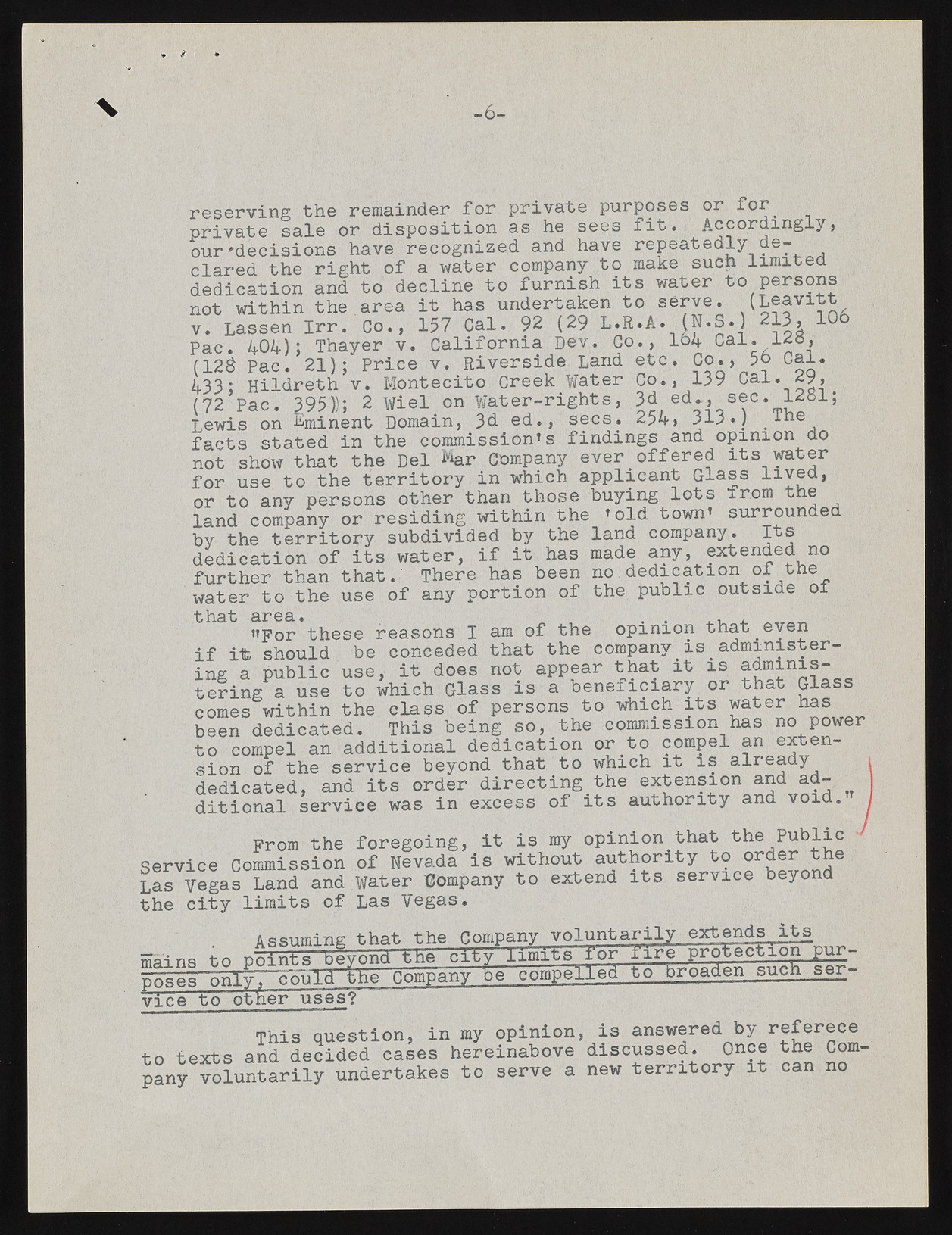Copyright & Fair-use Agreement
UNLV Special Collections provides copies of materials to facilitate private study, scholarship, or research. Material not in the public domain may be used according to fair use of copyrighted materials as defined by copyright law. Please cite us.
Please note that UNLV may not own the copyright to these materials and cannot provide permission to publish or distribute materials when UNLV is not the copyright holder. The user is solely responsible for determining the copyright status of materials and obtaining permission to use material from the copyright holder and for determining whether any permissions relating to any other rights are necessary for the intended use, and for obtaining all required permissions beyond that allowed by fair use.
Read more about our reproduction and use policy.
I agree.Information
Digital ID
Permalink
Details
More Info
Rights
Digital Provenance
Publisher
Transcription
V -6- reserving the remainder for private purposes or for private sale or disposition as he sees fit. Accordingly, our'decisions have recognized and have repeatedly de- dared the right of a water company to make such limite dedication and to decline to furnish its water to persons not within the.area it has undertaken to serve. (Leavitt v. Lassen Irr. Co., 157 Cal. 92 (29 L.R.A. (N.S.) 213, 10 Pac. 404); Thayer v. California Dev. Co., lo4 Cal. l^o, (123 Pac. 21); Price v. Riverside Land etc. Co., 5o Ca±. 433; Hildreth v. Montecito Creek Water Co., 139 Cal. 29, (72 Pac. 395)); 2 wiel on Water-rights, 3d ed., sec. 128.1; Lewis on Eminent Domain, 3d ed., secs. facts stated in the commission’s findi ng2s5 4 a> nd o•p) in. iionne do not show that the Del % r Company ever offered its water for use to the territory in which applicant Glass lived, or to any persons other than those buying lots from the land company or residing within the ’old town’ surrounded by the territory subdivided by the land company. Its dedication of its water, if it has made any, extended no further than that.' There has been no.dedicationol the water to the use of any portion of the public outside of that a’’Freoar. these reasons I am of„ t,h e opi. ni. on t,,h a§t |e|mve£4n if it should be conceded that the company_is^administering a public use, it does not appear that it is administering a use to which Glass is a beneficiary or that Glass comes within the class of persons to which its water has been dedicated. This being so, the commission has no power to compel an additional dedication or to compel an extension of the service beyond that to which it is already ( dedicated, and its order directing the extension and ad- ditional serviee was in excess of its authority and void. From the foregoing, it is my opinion that the Public LSaesr viVceeg asC oLmamnids siaonnd Woaf teNre vCadoam paisn yw ittoh oeuxtt enadu thitosr itsye rvtoi ceo rb, eyond,e the city limits of Las Vegas. Assuming that the Company voluntarily extends itj3 mains to points beyond the city limits for tire protection p*y.“ poses "only', could the Company be compelled to broaden such service to other uses? This question, in my opinion, is answered by referece to texts and decided cases hereinabove discussed. Once the Com- pany voluntarily undertakes to serve a new territory it can no

